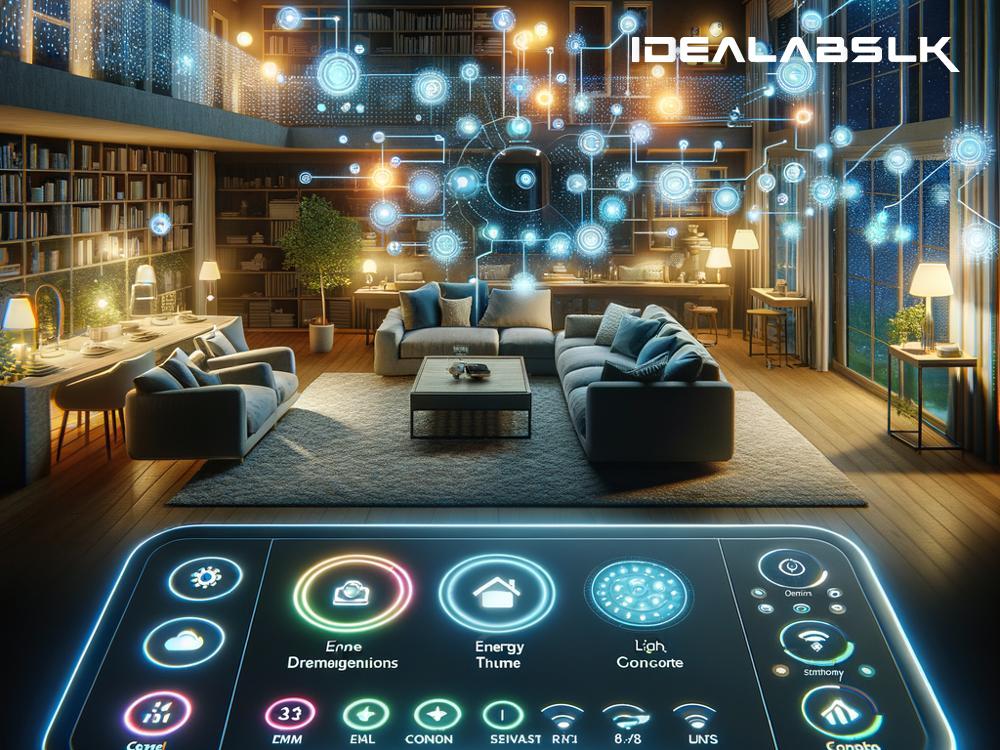AI in Smart Lights: Predicting Usage and Saving Energy
Imagine you're walking through your home, and as you enter each room, the lights automatically turn on. Then, they dim or brighten based on how much light is coming in through the windows. You don't have to think about switching lights off when you leave a room; they just know. It sounds like something out of a sci-fi movie, but thanks to AI (Artificial Intelligence), smart lights are making this a reality, all while helping to save energy and reduce electricity bills.
The Magic Behind AI in Smart Lighting
Smart lights connected to AI don't just operate on simplistic commands like "turn on" or "turn off." Instead, they learn from your behavior and make decisions to optimize lighting usage and save energy. How does this magic happen? Through a mix of sensors, data analysis, and learning algorithms, AI observes patterns in how and when you use lights. Over time, it predicts your behavior and adjusts the lighting automatically.
For example, if you get up every night at 3 AM to drink water, AI will note this pattern. Instead of you fumbling in the dark or blinding yourself with bright lights, smart lights can guide your way with a soft glow, turning off as you head back to bed. It's a simple application, but it illustrates how AI uses data to make intelligent decisions.
Predicting Usage
Prediction is at the heart of how AI enhances smart lighting systems. By gathering data over time, AI can forecast your lighting needs based on the day of the week, time, and even the season. During a bright summer morning, it might not turn on the lights at all, but come winter, your kitchen could be bathed in warm light, ready for your morning cup of coffee.
AI doesn’t only react to your routine; it also considers the entire home's rhythm. If no one is home, AI can ensure all lights are off, saving energy. But it can also simulate presence for security by turning lights on and off in a natural, believable pattern, deterring potential intruders.
Saving Energy
One of the most significant benefits of AI in smart lighting is the impact on energy consumption. Lighting accounts for a considerable chunk of household energy usage, but AI can markedly reduce this. By ensuring lights are only on when needed and adjusting brightness according to natural light available, AI significantly cuts down unnecessary energy use. This not only helps the planet but also lowers energy bills.
Moreover, AI can integrate with other smart home systems, like blinds or windows, to create an even more efficient system. For instance, if the system notes it's too bright inside, instead of dimming the lights, it might decide to lower the blinds, conserving energy naturally.
The Challenges and The Future
While the benefits are plentiful, integrating AI with smart lighting does face some hurdles. Privacy concerns are at the forefront, as these systems require a lot of personal data to function optimally. Ensuring this data is protected is paramount for both manufacturers and users.
Another challenge is making these systems user-friendly for everyone. While tech-savvy individuals might find it easy to navigate these technologies, it’s essential that they are accessible and straightforward for all users, regardless of their tech expertise.
Looking ahead, the future of AI in smart lighting is bright (pun intended). As AI technology becomes more sophisticated, we can anticipate smarter, more intuitive systems that seamlessly integrate into our daily lives. These systems will not only learn faster but also interact with a broader range of devices within the smart home ecosystem, offering unprecedented levels of comfort and energy efficiency.
Embracing the Glow of Smart Lighting
AI in smart lights is more than just a convenient way to control your home's lighting. It's a transformative technology that marries innovation with sustainability. By predicting usage and optimizing energy consumption, AI-powered smart lights not only make our homes more comfortable but also contribute to a greener, more energy-efficient world.
The potential of AI in this space is vast, and as it continues to evolve, it will unlock new possibilities for smart living. Embracing AI in smart lighting is a step toward a future where our homes are not just places of comfort but also bastions of sustainability. And in this future, we all shine a little brighter.

